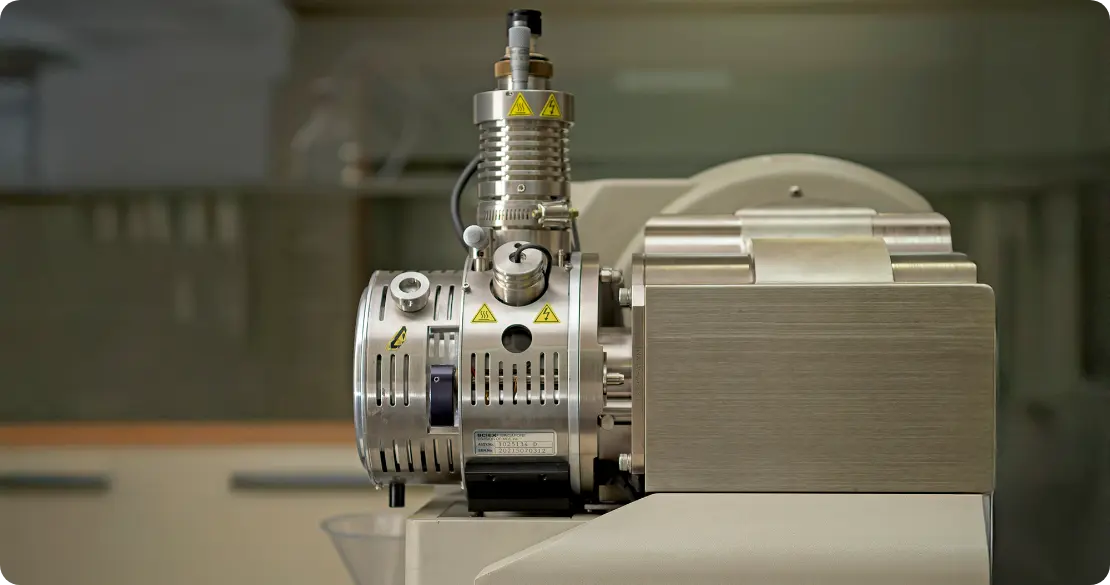Advancing innovation from laboratory to
launch
We focus on advancing small molecules and
next-gen modalities like ADCs, oligonucleotides, and peptides, ensuring efficient,
sustainable, and scientifically rigorous transitions from development to GMP-compliant
manufacturing.
Chemical Development Overview
The Chemical Development department provides
end-to-end process development and bulk manufacturing in both cGMP and nGMP modes. Our
advanced PRD lab, with integrated safety and engineering capabilities, ensures smooth
scale-up and production.
Operations across our sites in Bengaluru and
Mangaluru support business continuity,
addressing supply chain, compliance, documentation, and workforce resilience.
We are advancing next-gen modalities like
ADCs, oligonucleotides, and peptides, working
closely with customers to develop payloads, linkers, and conjugation strategies for
mAbs.
To drive sustainable innovation, we’re
investing in biocatalysis for cleaner, more
efficient synthesis and expanding expertise in Photoredox and flow chemistry.
Performance Overview
Development services performed steadily in
FY25, fueled by repeat orders and new integrated collaborations from drug development to
clinical-stage manufacturing. Early-stage small molecule process development saw strong
growth, with successful project deliveries paving the way for future expansion.
We focused on enhancing capabilities,
upgrading facilities, and onboarding experts for emerging pharmaceutical modalities.
Streamlined documentation processes ensured timely deliveries while maintaining
regulatory compliance.
Capability Expansion
- We established a dedicated laboratory for
potent molecule synthesis, boosting our ability to manage complex projects. Our
upgraded Chemical Development Laboratory is now operational, increasing project
throughput, with a specialized hazardous lab for safe handling of cyanide and toxic
reactions.
- A bench-top biocatalysis capability for
new modalities was developed, with enzymatic screening underway. Additionally, a
state-of-the-art facility at our Mangaluru site was commissioned to handle OEB-4
(Occupational Exposure Banding) molecules, enhancing our capacity for high-potency
compounds.
Pioneering Breakthroughs in Process
Innovation
Our team collaborated with global customers,
adopting advanced methodologies to improve yield, purity, and cost efficiency without
compromising safety or quality. Achievements included reduced manufacturing costs,
minimized waste, and optimized results beyond initial expectations.
The peptide and oligonucleotides teams drove
significant process improvements, ensuring timely, high-quality solutions. Additionally,
the CD-PRD team published a paper in Organic and Process Research & Development (2024)
on successfully scaling a stereoselective cyclopropanation for Factor-D inhibitors,
overcoming challenges with pyrophoric reagents under cryogenic conditions. The
publication recognized 12 Syngene co-authors.
Advancing Sustainable Practices
- We optimized the process for a rare
disease molecule, reducing PMI from over 40 to below 15, increasing yield to 60%,
and halving cycle time. This improved process delivered 26% more product with the
same raw materials, reducing waste and improving resource efficiency.
- A scalable process for an alcohol-based
intermediate enhanced reaction efficiency and reliability, increasing yield by 10%
and reducing Cost of Goods Sold (COGS) by 5%. We also optimized an ADC molecule
process, addressing crystallization and purification challenges, resulting in a 10%
reduction in E-factor and minimizing waste.
- To drive sustainable innovation, we are
investing in biocatalysis for cleaner, more efficient synthesis and expanding
expertise in Photo redox, electrochemistry, and flow chemistry.
Innovative Synthetic Approaches
Integrated Drug Development (IDD)
Program
- In collaboration with a U.S. based
biotech firm, we developed a polymer-based drug for a rare inherited metabolic
disorder. The process was successfully scaled up for bulk batches, optimizing raw
material use and cycle times, and is now ready for cGMP manufacturing.
- The team also developed a novel
activated polymer for enzyme conjugation, with plans for cGMP scale-up. The process
aligns with sustainable practices, reflecting our commitment to green chemistry.
Additionally, we developed a polymer library for RNA encapsulation in genetic
disorder treatments, completing the project on time and maintaining high material
quality.
Enhancing Quality Excellence and Productivity
The PRD team identified documentation and
plant support as productivity barriers. To
address this, a dedicated team was formed to simplify SOPs, reducing turnaround time and
eliminating non-value-added tasks. This streamlined approach improved focus on core
activities, ensured seamless customer communication, and led to smoother operations and
successful project outcomes.
Innovations in Material Science
We partnered with a customer to develop ionic
materials for clean energy, achieving four times the stability and performance of market
benchmarks. Large-scale production of 300-meter membrane rolls was successfully
executed, advancing decarbonization efforts.
The team also developed a novel library of
cross-linkable polymers for Printed Circuit Board (PCB) applications, with ongoing
investigations into crosslinking reactions. Additionally, a polymer was successfully
conjugated with a therapeutic protein, advancing its potential for rare
disease treatment.
Risk Management
We successfully managed the handling of TMSCN
(cyanide) in an acidic medium, effectively controlling the release of hazardous HCN
(hydrogen cyanide) gas. A thorough risk assessment was conducted from raw material
procurement to manufacturing, with all safety recommendations implemented. The safe
execution of three batches was shared with the customer, who praised Syngene’s risk
management protocols.
Analytical Development
The team completed its first chiral
purification by Supercritical fluid chromatography (SFC) for linker moiety at the
manufacturing facility, boosting QC confidence for future projects. New customers were
onboarded, and high-value analytical method development proposals were received,
showcasing our technical expertise.
A new model introduced staged training for
process chemists on UPLC/HPLC for IPC analysis. Capabilities were enhanced with Prep
HPLC, Arc HPLC with SEC-MALS (Size Exclusion Chromatography with Multi-Angle Light
Scattering), and potent molecule prep isolation. Over 90% of projects are now recorded
in electronic lab notebooks, improving efficiency and data security. A phase gate
quality system was also implemented to ensure Right First Time accuracy during method
transfers.
Syngene Joins ACS Green Chemistry
Roundtable
Syngene has joined the American
Chemical Society Green Chemistry Institute Pharmaceutical Roundtable (ACSGCIPR)
as an associate member, strengthening our commitment to sustainable innovation
in pharmaceutical development.
This membership enables collaboration
with global leaders like Pfizer, AstraZeneca, and Amgen, expanding our expertise
in flow chemistry, solvent selection, biocatalysis, and emerging technologies.
It offers opportunities for scientific exchange, publications, and collaborative
research, reinforcing Syngene’s position as a sustainability-driven CDMO
partner. Our inclusion reflects both our scientific strength and alignment with
global green chemistry goals.
